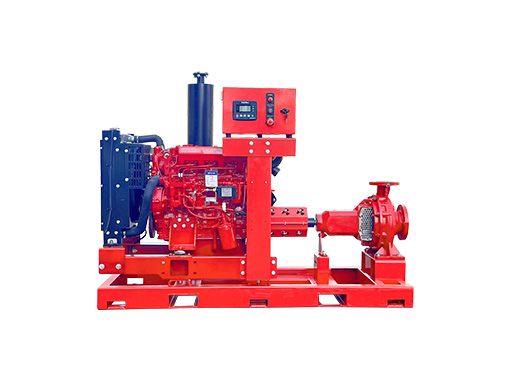
Fire pumps are crucial for effective fire protection, providing the necessary water pressure and flow needed to combat fires. When selecting a fire pump for your facility, one of the key decisions is whether to use an electric or diesel-powered pump. Each type has its advantages and disadvantages, making it essential to understand their differences to choose the right one for your specific needs. In this article, we will explore the benefits of both electric and diesel fire pumps, helping you make an informed decision.
Benefits of Electric Fire Pumps
-
Lower Operating Costs
- Energy Efficiency: Electric fire pumps are generally more energy-efficient than diesel pumps, leading to lower electricity costs over time.
- Reduced Fuel Costs: With electric pumps, there are no fuel expenses, unlike diesel pumps, which require regular refueling.
-
Quieter Operation
- Electric pumps operate much more quietly than their diesel counterparts. This can be particularly beneficial in urban settings or environments where noise reduction is a priority.
-
Less Maintenance Required
- Electric fire pumps have fewer moving parts compared to diesel engines, resulting in lower maintenance requirements. There are no oil changes, fuel filters, or exhaust systems to manage.
- The simplicity of electric systems often translates to reduced downtime for maintenance, ensuring the pump is available when needed.
-
Immediate Availability
- Electric pumps are ready to operate as soon as power is supplied. There’s no need for warm-up or startup time, which can be critical during emergencies.
-
Environmental Considerations
- Electric pumps produce no emissions during operation, making them a more environmentally friendly option, especially in areas with strict emissions regulations.
-
Space Efficiency
- Electric fire pumps are typically more compact than diesel models, making them easier to install in limited spaces. This can be advantageous in facilities with space constraints.
Benefits of Diesel Fire Pumps
-
Reliability During Power Outages
- Diesel fire pumps operate independently of the electrical grid, making them invaluable during power outages or in remote locations where electricity may not be available.
- They provide a reliable source of water pressure in emergencies, ensuring that firefighting capabilities remain intact even when the power goes out.
-
Higher Power Output
- Diesel engines generally produce more power than electric motors of comparable size. This can be advantageous in applications requiring large volumes of water at high pressures.
-
Longer Run Times
- Diesel pumps can run for extended periods without the need for refueling, especially if equipped with large fuel tanks. This can be critical in prolonged emergency situations.
-
Robustness and Durability
- Diesel fire pumps are often built to withstand harsh environments and heavy use, making them suitable for industrial applications and outdoor settings.
-
Familiarity and Availability
- Many fire protection professionals are familiar with diesel systems, making training and maintenance more accessible. Diesel pumps are widely available and can be sourced from various manufacturers.
-
Flexibility in Location
- Diesel fire pumps can be installed in locations where electrical infrastructure is not feasible, making them ideal for remote sites or construction projects.
Conclusion
Choosing between electric and diesel fire pumps depends on several factors, including site conditions, budget, and specific firefighting needs.
Electric fire pumps are well-suited for urban environments where noise, emissions, and operating costs are critical considerations. They offer efficiency, lower maintenance, and ease of use.
On the other hand, diesel fire pumps provide reliability in power outages, higher power output, and robustness, making them ideal for industrial applications or remote locations.
Ultimately, the decision should be based on a thorough assessment of your facility’s requirements, the local environment, and your long-term operational goals. Consulting with fire protection professionals can also provide valuable insights, ensuring that you select the most appropriate fire pump for your needs. Regardless of the choice, investing in a quality fire pump is essential for protecting lives and property against the devastating effects of fire.
